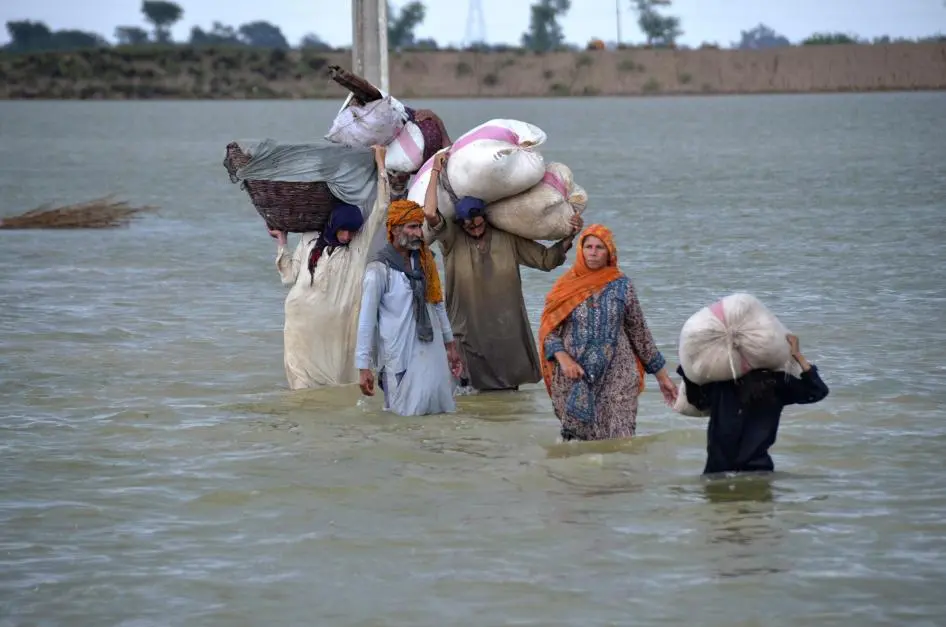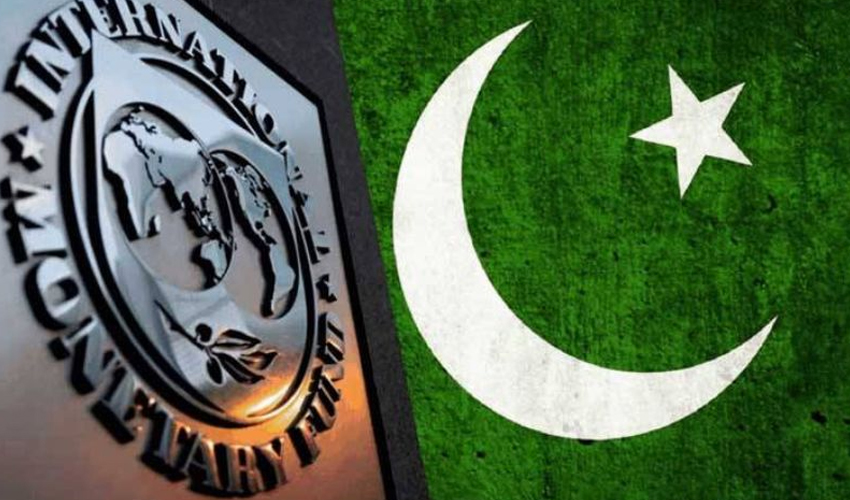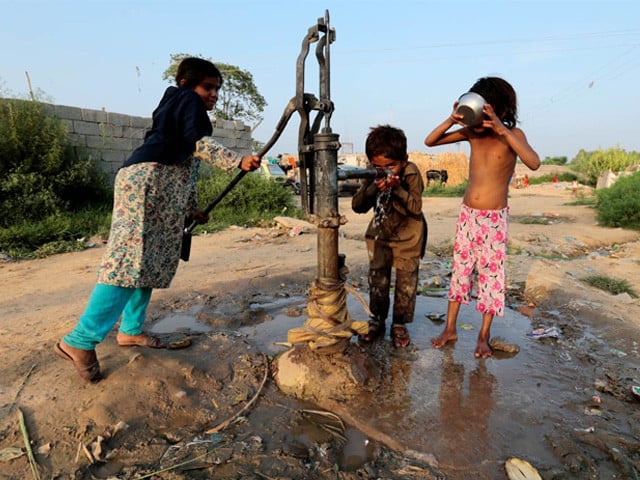Dr Shabana Safdar Khan
The recent warning from the World Bank, highlighting the increasing likelihood of conflict over water, should serve as a sharp wake-up call for Pakistan’s policymakers. The fact that international bodies are predicting water riots speaks volumes about the magnitude of the crisis that has been allowed to fester for years. The government’s failure to tackle this critical issue effectively is not just a policy misstep; it’s a colossal failure of governance that has pushed Pakistan toward the brink of a catastrophic water shortage.
This looming disaster is a direct indictment of decades of neglect, poor decision-making, and short-term political fixes that have failed to address the root causes of Pakistan’s water scarcity problem. The signs have been apparent for years, but instead of confronting these challenges head-on, successive governments have treated them as peripheral issues, only exacerbating the situation.
Pakistan’s water crisis is not a new phenomenon, yet it has been continuously downplayed by policymakers. The country’s water scarcity issue has been exacerbated by a variety of factors, including a rapidly depleting water table, outdated and inefficient irrigation systems, and an over-reliance on a canal network that is fast approaching the end of its useful life. These structural issues have only worsened as the population grows and climate change accelerates. However, there has been a striking lack of coherent long-term planning to address these issues.
For example, in Punjab, nearly 40% of water is lost in community watercourses due to poor maintenance and the dilapidated state of infrastructure, as reported by the On-Farm Water Management (OFWM) programme. Further, in the Indus Basin, unlined watercourses suffer losses ranging from 64% to 68% due to seepage, spillage, and leakage from the sides. These inefficiencies are not just an inconvenience – they are a direct threat to the country’s food security and overall economic stability. If Pakistan is to survive the coming water crisis, urgent and far-reaching reforms are needed.
The Indus Water Treaty, which was once hailed as a diplomatic achievement, is now a point of vulnerability for Pakistan. The treaty was designed to ensure the equitable sharing of water resources between India and Pakistan, but it has become increasingly outdated in light of new challenges such as climate change and upstream activities by India that have altered the flow of water in the Indus River. Despite these shifting realities, Pakistan’s response has been insufficient. Instead of engaging in proactive diplomacy or investing in modern water management technologies, the government has resorted to political posturing, often making grand statements that do little to address the underlying issues. The failure to adapt to changing climatic patterns and the evolving geopolitical landscape has left Pakistan exposed to water insecurity.
The consequences of this neglect are already being felt across the country. In urban areas, water shortages have led to the rise of tanker mafias, who charge exorbitant rates for what should be a basic human right. In rural areas, farmers are struggling to irrigate their crops, resulting in declining agricultural productivity and increasing food insecurity. As temperatures rise and glaciers continue to melt, these issues will only intensify. The warnings of water riots, as predicted by the World Bank, are not alarmist; they are an unfortunate inevitability if corrective actions are not taken immediately.
The government’s failure to address the water crisis is not just an economic failure – it is a moral and political failure. It is a betrayal of the people’s right to life and dignity, as access to clean water is a fundamental human right. The situation is dire, and the government must be held accountable for its criminal negligence in managing this vital resource. Pakistan cannot afford to wait until the crisis reaches a breaking point. The time for empty promises and political rhetoric has passed.
Pl watch the video and subscribe to the YouTube channel of republicpolicy.com
To avoid the impending disaster, concrete and comprehensive steps must be taken. First and foremost, Pakistan must invest in modern water conservation technologies and infrastructure. This includes building new reservoirs to store water, repairing the existing canal system, and implementing water-efficient agricultural practices. Techniques such as drip irrigation, rainwater harvesting, and wastewater recycling must be incentivized and widely adopted across the country. These technologies offer the potential to significantly reduce water wastage and improve overall water use efficiency.
Secondly, comprehensive water governance reforms are urgently needed. The current water management system is fragmented and inefficient, with various agencies and institutions working in silos without clear accountability. The government must streamline this structure, establish clear responsibilities, and introduce robust accountability mechanisms. Moreover, water pricing must be rationalized to discourage wasteful consumption while ensuring that the poor are not priced out of access to this critical resource. A fair and transparent pricing system can help change consumption behavior and promote water conservation.
Diplomatic efforts must also be a priority. Pakistan must engage more proactively with India and other regional stakeholders to ensure equitable water sharing and prevent upstream activities from exacerbating the crisis. This means updating the Indus Water Treaty to reflect the current realities and ensuring that water distribution remains fair and sustainable. Pakistan must also invest in better monitoring and management systems to track water usage and ensure that the country’s resources are being utilized effectively.
Additionally, public awareness campaigns are essential to educate the population about the importance of responsible water usage. Pakistan’s water crisis is not just a government issue – it is a national issue that requires the active involvement of every citizen. By empowering local communities to take responsibility for water management and conservation, Pakistan can help ensure that water is used more sustainably and efficiently. Public engagement is key to solving the crisis and fostering a culture of conservation.
The World Bank’s warning about water riots should not be ignored as mere alarmism. It is a stark reminder that water security is an issue of national security. If the government continues to neglect this pressing issue, the consequences will be catastrophic – both in terms of human suffering and political instability. A lack of water security could lead to widespread unrest, exacerbate existing inequalities, and destabilize the entire country. Water scarcity is not just an environmental issue; it is a matter of social, economic, and political stability.
Pakistan is at a critical juncture. The country has a choice: take immediate and decisive action to address the water crisis or face a future of social unrest, economic decline, and political instability. The clock is ticking, and the government must act now before it is too late. The time for platitudes and empty promises is over. Concrete actions are required, and they must be taken swiftly and effectively if Pakistan hopes to avert a water catastrophe in the coming years.
In conclusion, Pakistan’s water crisis is a ticking time bomb, and the government must take immediate and comprehensive action to address it. From investing in modern infrastructure and technologies to reforming water governance and engaging in proactive diplomacy, Pakistan must adopt a multifaceted approach to mitigate the looming disaster. Only by taking these steps can Pakistan secure its future, protect its people’s right to water, and ensure that future generations inherit a stable and prosperous country.















